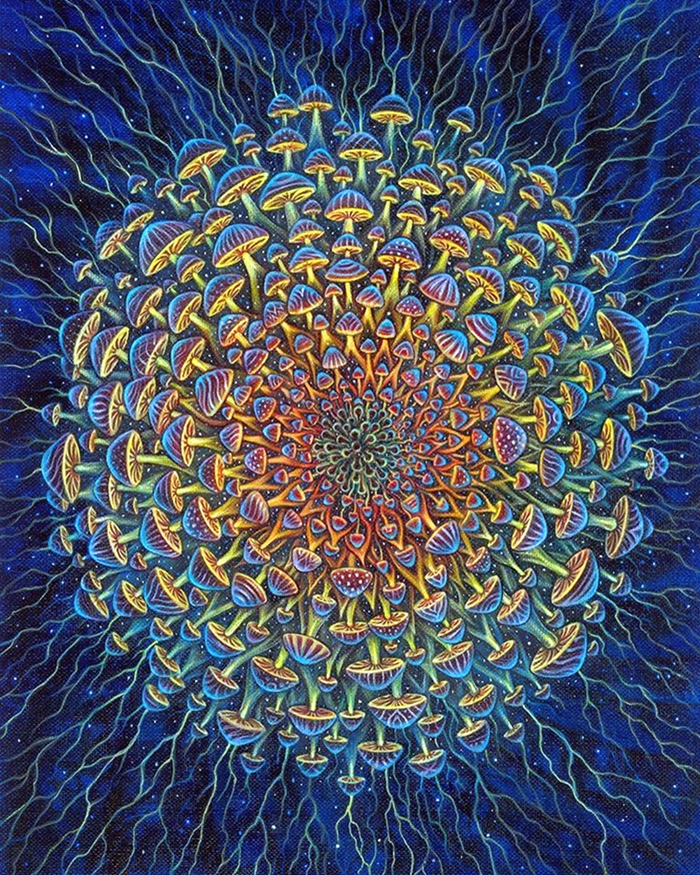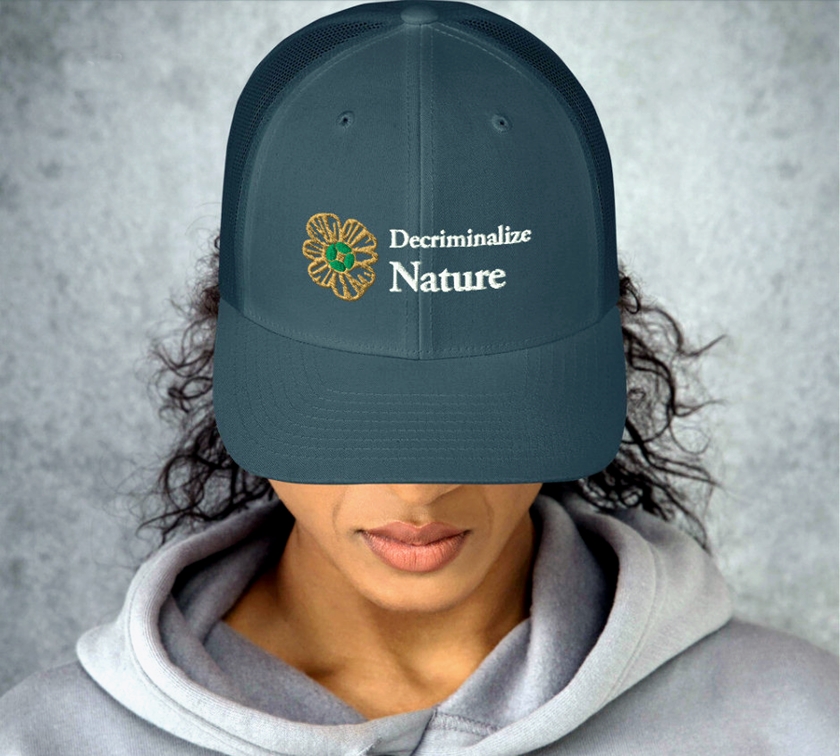Psychedelic substances share Detroit's Nov. 2 ballots with candidates for mayor, council, clerk and the police commission board.

Illustration from Blue Sage Health Consulting in Ann Arbor, which trains psychedelic therapy clinicians and helps clients "prepare for and integrate psychedelic experiences."
Proposal E gives voters a chance to allow mental health use of natural hallucinogens such as "magic mushrooms," peyote, mescaline and psilocybin -- but not LSD, which is lab-made. (Two other city proposals involve a racial reparations task force and amending the city charter.)
Passage would decriminalize adult possession and therapeutic use of what are called entheogenic plants, such as cacti and fungi with psychoactive ingredients that alter perception, mood, consciousness, cognition or behavior. They can be used for religious ceremonies, mystical experiences and psychological counseling.
Next week's one-sentence ballot language says approval would "make the personal possession and therapeutic use of Entheogenic Plants by adults the city's lowest law-enforcement priority." Distributing psychedelics in amounts not for personal use still would be illegal. (LSD, which is synthesized in labs, isn't covered.)
The Detroit Free Press and Metro Times endorse passage.
► Update: In an Oct. 26 editorial, the Michigan Chronicle also recommends a "yes" vote "because the Black community already has a history of being criminalized above and beyond in the judicial system because of inflated charges, unjust treatment, and more toward drug-related crimes. Decriminalizing the use of magic mushrooms, especially for medicinal purposes, is what the Black community needs."
► Pro and con: Points by each side are summarized below
Ann Arbor council members unanimously decriminalized psychedelic plants in September 2020, a policy embraced by Washtenaw County prosecutor Eli Savit. "I do not plan to prosecute the use or possession of entheogenic plants in any other part of the county," he said soon after the council resolution. "The War on Drugs has been an abject failure."
In Washington State, Seattle’s City Council early this month voted unanimously to decriminalize noncommercial use of psychedelics, including cultivation and sharing of psilocybin mushrooms. "These nonaddictive natural substances have real potential in clinical and therapeutic settings to make a really significant difference in people’s lives," the resolution's sponsor said. A city task force studying opioid overdoses had recommended the step.
Lansing legislation
In Michigan, Democratic State Sens. Adam Hollier of Detroit and Jeff Irwin of Ann Arbor last month introduced a bill to legalize noncommercial possession, cultivation and delivery of psilocybin, mescaline and other psychedelics. The measure would ban criminal penalties if people are not "receiving money or other valuable consideration for the entheogenic plant or fungus." It allows a "reasonable fee for counseling, spiritual guidance or a related service that is provided in conjunction with the use of an entheogenic plant or fung."
"These substances have medicinal value, they have religious significance and they have a very low propensity for abuse," Irwin tells Michigan Advance. "It really makes no sense to spend any time or money arresting people and turning their lives upside down."

Merch from a national advocacy and education group based in Oakland, Calif.
These steps are part of a national movement that's a sequel to cannabis legalization, though hallucinogen dispensaries aren't a thing yet.
Denver in 2019 became the first U.S. city to decriminalize psilocybin possession. Oregon voters legalized psilocybin therapy last November and residents of Washington, D.C., voted to make possession of psychedelics a lowest-priority offense.
Johns Hopkins University and the University of California-Berkeley opened psychedelic research centers in recent years.

(Illustration: Journal of Jungian Scholarly Studies)
What backers and critics say
Points in favor of Proposal E:
-
Adults have a right to use plants of their choice.
-
These substances have been used medicinally and ceremonially by Indigenous cultures for thousands of years.
-
Hallucinogens can have a significant impact on mental and spiritual health with lasting benefits, some researchers say. They're potentially useful as part of therapy for addiction, depression, anxiety, post-traumatic stress disorder and suicidal thoughts.
-
They can help terminal cancer patients have "very profound experiences with music, support, safety ... and it just stays with them." -- Dr. Sunil Aggarwal of Seattle, a University of Washington School of Medicine instructor
-
Allowing professionally supervised use reduces risks of unguided "trips."
-
"Naturally occurring entheogenic plants are not generally addictive, nor do they present a significant risk of a fatal overdose. Entheogenic plants, moreover, are not associated with violent behavior." -- Washtenaw County Prosecutor's Office
-
"Consciousness exploration using plants tends to restore a bond between people and the natural world." -- Decriminalize Nature Michigan
Concerns about Proposal E:
-
Only limited research supports therapeutic use of hallucinogens.
-
Some patients would choose psychedlic therapy instead of conventional mental health care that may be more appropriate.
-
Passage could bring loosely monitored recreational use and unguided experimentation with hallucinogens by thrill-seekers.
-
"Decriminalization in the state's largest city could create momentum for future statewide decriminalization efforts." -- Citizens Research Council of Michigan



 by
by







